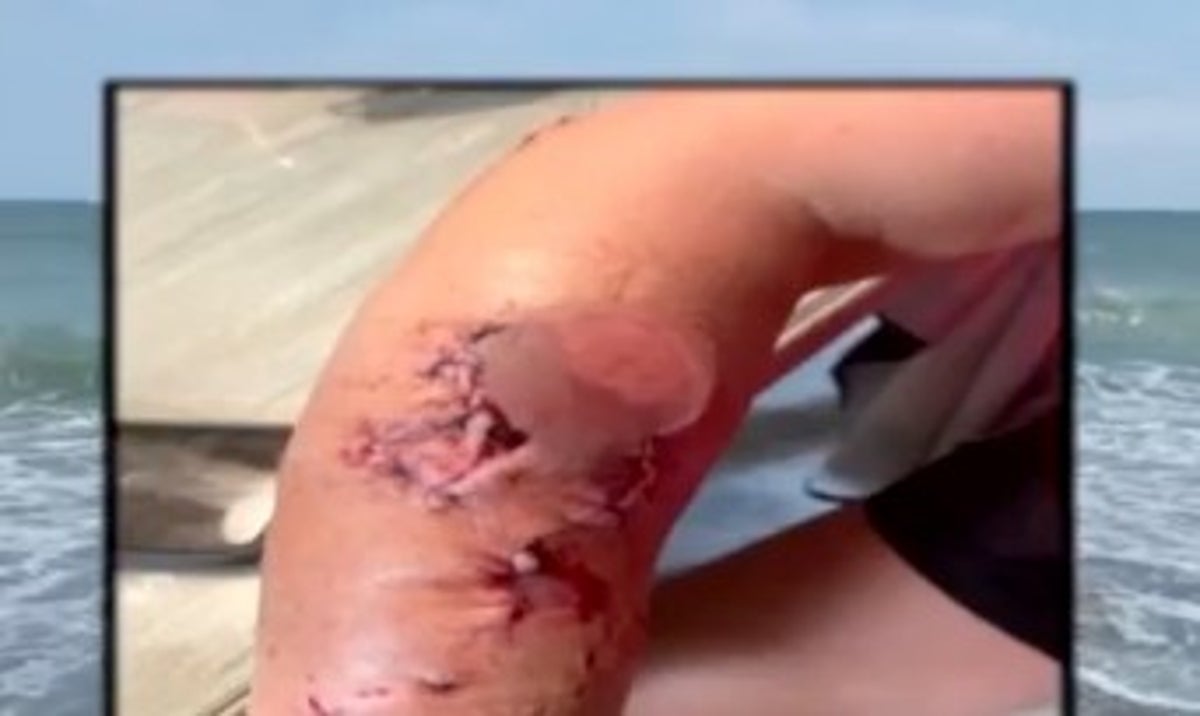
Two swimmers have survived shark bites at a South Carolina beach this week, say officials.
Both victims were attacked at Myrtle Beach about half a mile apart, with one receiving a seriously injured forearm and the other a bite to the leg, according to police.
Authorities in the state say there is no way to know if the same shark carried out both attacks at South Carolina’s most popular beach.
Karen Sites of Pittsburgh, Pennsylvania, required hundreds of stitches in her arm following the attack, which took place in waist-deep water on the first day of her vacation.
“I just felt something, I guess, bite me and there was a shark on my arm,” Ms Sites told WPDE-TV.
Her eight-year-old grandson, Brian Sites, told the station that he heard his grandmother scream when she was bitten.
“I couldn’t even see the shark coming up, but all I saw was the shark jumped up and it didn’t even bite all the way,” he said.
“I’ll sit on the sand, but I ain’t going in the water,” he added.
Daniel Abel, a professor of Marine Science at Coastal Carolina University, told the station that shark bites were more common at this time of year.
“It’s very clearly a shark bite, when you look at the arc of the tooth marks and the damage that was done, my sympathies to the victim that’s a horrendous thing to go through,” he said.
And he added that there are precautions that people can take.
“Not to swim at dawn and dusk, there’s not many people in the water then and some of the sharks are closer and feeding. Don’t swim where there are schools of small fish offshore. Don’t swim near where people are fishing near piers.”
Shark attacks in the United States are still very rare, according to the International Shark Attack File maintained by the University of Florida.
Just 47 shark bites were recorded at beaches in the US in 201, the group’s data shows. Just four of those took place in South Carolina, while Florida saw the most with 28.







